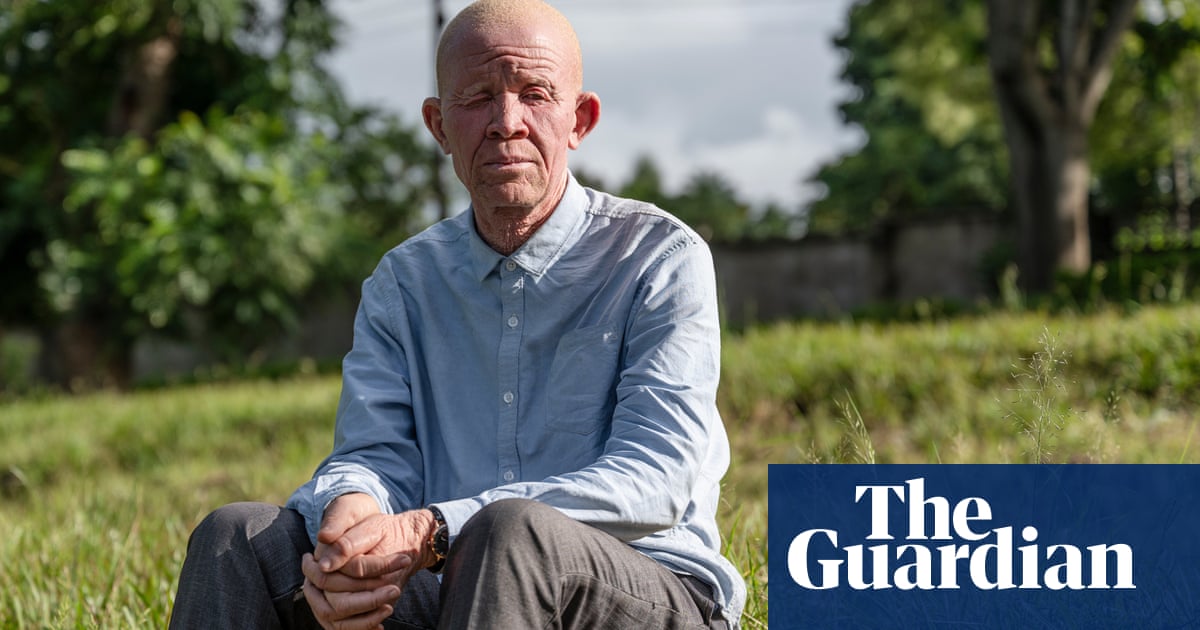Tonney Mkwapatira was making a rare visit back to his home village from the Malawian city of Blantyre when he saw his childhood friend for the last time. Just a week after Mkwapatira returned to Blantyre he heard that his friend, a security guard for a church, had been murdered.
“His name was Chikumbutso Masina and we used to chat almost every day. We looked alike and it was painful when people missed him because they used to ask me questions like, “Oh we heard that you had died?” It really touched me and I will never forget,” he says.
Like his late friend, Mkwapatira, 49, lives with albinism, a genetic disorder marked by an absence of pigment in the skin, hair and eyes. A 2018census peggedthe number of people living in Malawi with albinism at 134,636, or 0.8% of the population. Stigma and a lack of reporting means the true number could be higher.
People with albinism have been targeted, attacked and even killed for their body parts, which some believe bring luck and have healing properties. Since 2014, the country has recordedmore than 170crimes against people with albinism, including murders, abductions and grave tampering.
There have been a few successful prosecutions, includinga much-publicised casein 2020 in which 12 people, including apriest, several police officers and a medical practitioner, were convicted over the 2018 murder and dismembering of 22-year-old MacDonald Masambuka. That case still has political ramifications after some of the suspectsalleged the involvementof senior politicians, but government inquiries into killings of people with albinism have been shelved.
Last month, Mkwapatira, a school teacher, took a lone protest march through Blantyre demanding the release of the findings of at least two government commissions of inquiry instituted in the past few years, including one in 2019 by the then president, Peter Mutharika. Like many activists, he believes it could shed light on the origins of the violence against people with albinism.
“We hope and believe that in that inquiry there are guidelines, resolutions and recommendations.”
Mkwapatira was one of three siblings born with albinism in a family of nine children. “To be honest, we didn’t meet challenges while growing up,” he says. “I met some challenges for the first time while at secondary school, that’s when I realised my life and other people’s are different.”
He studied teaching, then started work at a primary school in a remote area in the Machinga region where he became concerned by the challenges that children with albinism were facing – including accessing health and skincare. He formed an organisation with two of his brothers called Albino Association of Malawi. “I was lucky that I was employed by the ministry of education immediately after passing the examination as a teacher.
“When I was in Machinga, I was observing what children were going through and this reminded me of my own experience,” he says. “When I met them, some were on the edge of dropping out and that’s why I decided to set up the organisation.”
He credits much of his passion as an activist to Cuthbert Kazingatchire, a teacher with albinism who inspired him to start working with schools across Malawi, dispelling stigma and myths.
Sign up toGlobal Dispatch
Get a different world view with a roundup of the best news, features and pictures, curated by our global development team
after newsletter promotion
“There was a myth that people with albinism don’t die,” Mkwapatira says. “And we’re very sad that [it took time before] we realised that people were not disappearing but they were being killed and abducted.
“The attacks are a product of pure evil and witchcraft and it touches on important personalities, even politicians. [The UN] found that this is mostly common as the country isheading to elections. And when we did our own investigation we found the same and that some political leaders were behind the attacks to assist them win elections,” he says.
Malawi is due to hold a general election in September.
“I think the reason why they are afraid to release [findings of the inquiries] is because of the names who were mentioned.”
Bonface Massah, former executive director for Standing Voice, a charity for the rights of people with albinism, described the government’s failure to release the results of inquiries as “unfortunate” and commended Mkwapatira’s efforts.
“We are dealing with a life and death situation. There is no point of an inquiry if the results are never shared to the victims and even never shared to the state,” he says.
After his petition to the Blantyre district commissioner’s office, Mkwapatira received a letter of acknowledgment that “advised him” not to hold vigils at the office of the president.
But he says, the struggle is far from over. “I feel pain that we haven’t reached the targets that we set. To educate people with albinism and to go to the root cause of the atrocities. We still don’t know where this is coming from.”
